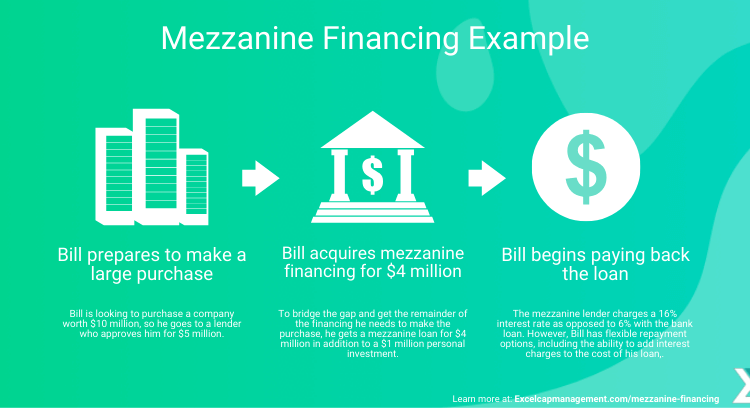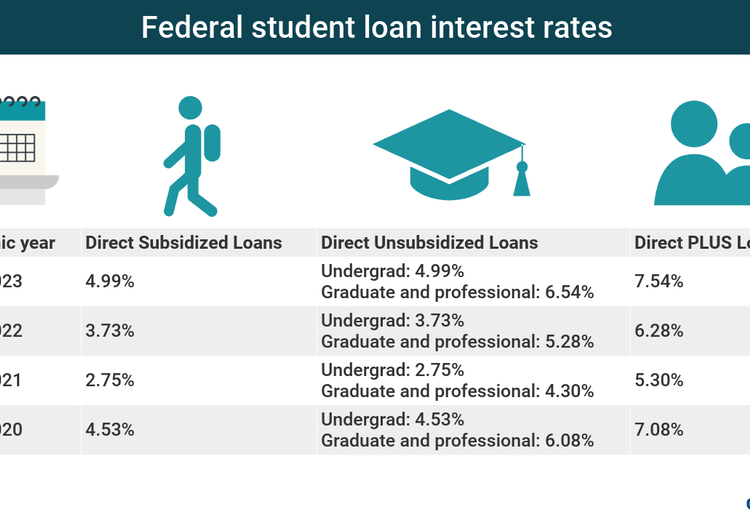Contrary to popular belief, your condo association’s master insurance policy likely doesn’t cover everything. This means personal liability and property damage within your unit are often your responsibility. This guide examines how to find the best condo insurance to fill these coverage gaps, ensuring you’re adequately protected against unforeseen events.
Toc
- 1. Understanding Condo Insurance Basics
- 2. Essential Coverage Types in Your Condo Insurance Policy
- 3. Related articles 01:
- 4. Comparing Top Condo Insurance Providers
- 5. Determining the Right Coverage Amounts and Saving Money
- 6. Strategies for Saving on Condo Insurance
- 7. Regional Considerations and Additional Resources
- 8. Frequently Asked Questions About Condo Insurance
- 9. Conclusion
- 10. Related articles 02:
Understanding Condo Insurance Basics

Understanding the intricacies of condo insurance is vital for any first-time buyer. Unlike traditional homeowner’s insurance (HO-3), which covers the entire structure of a home, condo insurance is specifically tailored for condo owners and typically involves an HO-6 policy. This section clarifies what condo insurance entails and how it differs from other types of coverage.
Defining Condo Insurance and Its Purpose
Condo insurance is designed to protect your individual unit and personal belongings. While your condo association’s master policy covers the building and common areas, it often leaves significant gaps in coverage. These gaps can include damage to your personal property, liability for injuries that occur in your unit, and additional living expenses if your condo becomes uninhabitable.
A common misconception among new condo owners is that their association’s insurance is sufficient. However, understanding the limitations of the master policy is crucial for avoiding financial losses due to unexpected events.
Some condo associations offer “walls-in” coverage in their master policy, meaning they only cover the interior walls and finishes of each unit. Others offer “walls-out” coverage, extending to the exterior walls. Understanding which applies to your building is crucial in determining your individual insurance needs.
The Role of the Master Policy and Its Limitations
The master policy, held by your condo association, generally provides coverage for the structure of the building and common areas such as lobbies, hallways, and recreational facilities. However, it typically does not cover:
- Personal Belongings: Items within your unit, such as furniture, electronics, and clothing, are usually not covered by the master policy.
- Liability Coverage: If someone is injured in your condo, the master policy may not protect you from legal claims or medical expenses.
- Additional Living Expenses: If your condo is damaged and you need to stay elsewhere, you may have to cover those costs out of pocket without an individual policy.
What an HO-6 Policy Covers
An HO-6 policy is specifically designed for condo owners and typically includes coverage for:
- Personal Property: This covers your belongings, including furniture and electronics, against risks such as fire, theft, and vandalism.
- Liability Claims: If a guest is injured in your unit, liability coverage protects you against potential lawsuits and medical expenses.
- Additional Living Expenses (ALE): This coverage helps pay for temporary housing and other costs if your condo becomes uninhabitable due to a covered loss.
- Loss Assessment: If your condo association faces significant expenses, this coverage helps you pay your share of the costs.
Addressing Common Misconceptions About Condo Insurance Coverage
Many first-time buyers assume that their condo association’s insurance is sufficient. However, it’s crucial to understand the limitations of the master policy and the importance of obtaining individual condo insurance. By doing so, you can avoid financial losses due to unexpected events.
Essential Coverage Types in Your Condo Insurance Policy
When searching for the best condo insurance, it’s essential to understand the various types of coverage included in an HO-6 policy. Each coverage type plays a significant role in protecting your investment and personal belongings.
Personal Property Coverage
Personal property coverage is a key component of condo insurance. This coverage typically protects items such as:
- Furniture: Couches, chairs, tables, and other furnishings.
- Electronics: TVs, computers, and other electronic devices.
- Clothing: Wardrobe items and accessories.
Coverage Limits and High-Value Items
Most policies have coverage limits, meaning there is a maximum amount the insurance company will pay for your personal belongings. High-value items, such as jewelry, art, or collectibles, may require additional scheduled coverage to ensure they are adequately protected.
Actual Cash Value vs. Replacement Cost
It’s also essential to understand the difference between actual cash value and replacement cost.
- Actual Cash Value: This method takes depreciation into account, meaning you may receive less than the original purchase price for damaged items.
- Replacement Cost: This approach covers the cost of replacing your belongings with new items of similar quality, regardless of depreciation.
Liability Coverage
Liability coverage is critical for condo owners, as it protects you against claims from guests who may sustain injuries while visiting your condo. This coverage can help cover:
- Medical Expenses: If a guest is injured, liability coverage can help pay for their medical bills.
- Legal Fees: If a lawsuit arises from an injury, liability coverage can help cover legal expenses.
Recommended Coverage Amounts
The recommended amount of liability coverage varies based on individual circumstances. It’s advisable to consider your overall assets and potential liabilities when determining the appropriate level of coverage. A common recommendation is to carry at least $100,000 in liability coverage, but higher limits may be appropriate for those with significant assets.
2. https://khositrangsuc.com/mmoga-best-car-insurance-consumer-reports-your-guide-to-top-providers/
3. https://khositrangsuc.com/mmoga-best-car-insurance-in-nevada-your-essential-guide/
5. https://khositrangsuc.com/mmoga-best-workers-comp-insurance-for-your-small-business/
While a high liability limit on your condo insurance is recommended, consider supplementing it with an umbrella liability policy for broader protection beyond your condo’s coverage limits. This can be particularly important if you own other assets.
Additional Living Expenses (ALE)
Additional Living Expenses (ALE) coverage is crucial for condo owners. If your condo becomes uninhabitable due to a covered event, ALE helps manage the costs associated with temporary housing. This coverage may include:
- Hotel Stays: Costs for staying in a hotel or rental property while your condo is being repaired.
- Increased Living Expenses: Additional costs incurred, such as higher grocery bills or transportation expenses.
Loss Assessment Coverage
Loss assessment coverage is particularly important for condo owners, especially if the condo association has a high deductible on its master policy. If the association faces significant expenses that exceed its coverage, individual unit owners may be responsible for contributing to the costs. This coverage helps protect you from unexpected financial burdens.
While loss assessment coverage is important, some condo associations maintain substantial reserve funds to cover major repair costs, reducing the likelihood of substantial special assessments. Check your association’s financial statements to assess this risk.
Dwelling Coverage
Depending on the specifics of your condo association’s master policy, you may need dwelling coverage. This coverage insures the interior of your unit, including:
- Improvements: Any upgrades or renovations you make to your unit.
- Fixtures: Custom fixtures or installations that enhance your living space.
Understanding your master policy’s coverage is essential to avoid potential gaps in protection.
Comparing Top Condo Insurance Providers
When searching for the best condo insurance, comparing various providers is crucial. Below, we review several leading condo insurance providers, highlighting their strengths and weaknesses.
State Farm Condo Insurance
State Farm is a well-known name in the insurance industry, offering comprehensive condo insurance options. Key features include:
- Coverage Options: State Farm provides various coverage options, including personal property, liability, and additional living expenses.
- Discounts: They offer discounts for bundling policies, installing safety devices, and having a claim-free history.
- Customer Service: State Farm is often praised for its responsive customer service, making it a popular choice among condo owners.
Progressive Condo Insurance
Progressive is recognized for its competitive pricing and customizable coverage options. Key highlights include:
- Customizable Policies: Progressive allows you to tailor your condo insurance policy to fit your specific needs.
- Online Tools: Their user-friendly online quote process makes it easy for first-time buyers to navigate their options.
- Discounts: Progressive offers various discounts, including those for bundling policies and safety features.
Allstate Condo Insurance
Allstate provides a robust range of coverage options tailored to condo owners. Notable features include:
- Unique Endorsements: Allstate offers unique endorsements like HostAdvantage, which covers damage when renting out your condo.
- Flexible Policies: Their policies allow for customization to meet your specific coverage needs.
- Discounts: Allstate provides various discounts, including those for bundling and claim-free histories.
Liberty Mutual Condo Insurance
Liberty Mutual is another reputable provider offering customizable condo insurance. Key points include:
- Customizable Options: Liberty Mutual allows you to adjust coverage levels and select additional options based on your needs.
- Discounts: They provide discounts for claim-free history and bundling policies.
- Mobile App: Their mobile app enhances the customer experience by allowing easy management of policies and claims.
Nationwide Condo Insurance
Nationwide offers a solid option for condo insurance with various coverage features. Highlights include:
- Optional Coverage: They provide optional coverage for valuables and water damage, enhancing your protection.
- Brand New Belongings: Their “Brand New Belongings” coverage ensures your personal property is insured at replacement cost rather than actual cash value.
- Discounts: Nationwide also offers discounts for bundling and claim-free histories.
Importance of Insurer Financial Strength Ratings
Before committing to a provider, check their financial strength ratings from organizations like A.M. Best. A strong rating indicates the insurer’s ability to pay claims, even during challenging economic times. Choosing an insurer with solid financial backing provides peace of mind that your claims will be honored when you need them most.
Other Providers
In addition to the major players mentioned above, it’s advisable to explore other reputable providers. Local or regional companies may offer competitive rates and tailored coverage options that suit your specific needs. Always compare quotes to find the best deal that meets your requirements.
Determining the Right Coverage Amounts and Saving Money
Finding the right coverage amounts for personal property and liability can be daunting for first-time condo buyers. This section provides guidance on determining appropriate coverage levels and strategies for cost savings.
Creating a Personal Property Inventory
One of the first steps in determining your personal property coverage needs is creating a detailed inventory of your belongings. Consider the following:
- List Each Item: Document each item you own, including furniture, electronics, and clothing.
- Assess Value: Estimate the value of each item and gather any receipts or appraisals you may have.
- Review Regularly: Update your inventory regularly to reflect any new purchases or changes in value.
Assessing Liability Coverage Needs
When determining the appropriate level of liability coverage, consider your assets and potential risks. Here are some factors to consider:
- Overall Assets: Think about the total value of your assets and what you could lose in a lawsuit.
- Potential Costs: Consider the potential costs associated with lawsuits or medical expenses resulting from injuries on your property.
- Higher Limits: It’s generally advisable to opt for higher liability limits to safeguard your financial well-being.
Understanding Deductibles
Deductibles are the amount you are responsible for paying out-of-pocket before your insurance coverage kicks in. Consider the following:
- Higher Deductibles: Choosing a higher deductible typically results in lower premiums, but ensure you can comfortably cover the deductible in the event of a claim.
- Premium Impact: Evaluate how different deductible amounts impact your overall premium costs.
Considering Inflation
It’s crucial to consider inflation when estimating the value of your belongings. The replacement cost of a damaged item today may be significantly higher in a few years. Regularly reviewing and updating your inventory is essential to maintain adequate coverage.
Strategies for Saving on Condo Insurance
First-time condo buyers often seek ways to save on their insurance premiums. Here are some practical tips to help you lower your costs:
Shop Around for Quotes
Obtaining quotes from multiple insurance providers is crucial. This process gives you a clearer picture of market rates and helps you identify the best value for your coverage needs. Consider using online comparison tools to streamline this process.
Bundle Policies
Consider bundling your condo insurance with auto or other insurance policies. Many providers offer discounts for bundling, which can significantly lower your overall premiums. This strategy can also simplify your insurance management by consolidating multiple policies with one provider.
Take Advantage of Discounts
Inquire about available discounts for safety features, claim-free histories, or loyalty programs. Each provider has different discount structures, so be sure to ask about potential savings opportunities. Common discounts include:
- Safety Features: Discounts for smoke detectors, security systems, and other safety measures.
- Claim-Free History: Reduced premiums for policyholders with no recent claims.
- Loyalty Discounts: Benefits for staying with the same insurance provider for an extended period.
Opt for a Higher Deductible
If you have the financial means to cover a higher deductible, opting for one can lead to lower premiums. Just ensure that the potential savings outweigh the risks associated with higher out-of-pocket expenses in the event of a claim.
The Rise of Smart Home Discounts
Many insurers now offer discounts for smart home devices that improve safety and security. Devices like smart locks, security systems, and water leak detectors can help prevent losses, leading to lower premiums. Investing in these technologies not only enhances your home security but can also provide significant savings on your insurance costs.
Regional Considerations and Additional Resources
When searching for the best condo insurance, regional factors can influence your decision. Understanding local market conditions and specific requirements is essential.
Best Condo Insurance in NJ
In New Jersey, specific regulations and insurance requirements may affect your coverage options and costs. Research local providers who understand the unique needs of NJ condo owners. The best condo insurance in NJ may differ from national averages, so take the time to explore local options.
Best Condo Insurance in the USA
Across the United States, insurance rates can vary significantly based on location, property value, and local risks. It’s essential to compare quotes nationwide to ensure you’re getting the best deal. Factors that can impact insurance rates include:
- Location: Areas prone to natural disasters may have higher premiums.
- Property Value: The value of your condo can influence coverage costs.
- Crime Rates: Higher crime rates in an area may lead to increased insurance premiums.
Best Condo Insurance Reddit Discussions
Online forums like Reddit can provide valuable insights into other condo owners’ experiences with various insurance providers. While anecdotal, these discussions can offer a glimpse into customer satisfaction and claims processes. Engaging with communities on platforms like Reddit can help you gather information about the best condo insurance options and learn from the experiences of others.
Frequently Asked Questions About Condo Insurance
What is the difference between HO-3 and HO-6 policies?
HO-3 policies are designed for single-family homes, providing coverage for the entire structure. In contrast, HO-6 policies are specifically tailored for condo owners, covering only the interior of the unit and personal belongings. Understanding these differences is crucial for selecting the appropriate policy for your needs.
Does condo insurance cover special assessments?
Not all condo insurance policies include loss assessment coverage. It’s crucial to check your individual policy to see if it covers special assessments from your condo association. Loss assessment coverage can help protect you from unexpected financial burdens if your association incurs significant expenses.
What if I rent out my condo occasionally?
If you plan to rent out your condo, you may need additional coverage. Policies like Allstate’s HostAdvantage offer protection for damages that occur during rental periods. It’s essential to discuss your rental plans with your insurance provider to ensure you have the appropriate coverage.
Conclusion
Finding the best condo insurance is crucial for protecting your investment as a first-time condo buyer. By understanding the different coverage options, comparing providers, and carefully considering your needs, you can secure a policy that provides adequate protection without breaking the bank. Start by getting quotes from multiple insurers and don’t hesitate to ask questions to ensure you have the right coverage. Remember to regularly review your policy to ensure it continues to meet your evolving needs.
This comprehensive guide aims to equip first-time condo buyers with the knowledge they need to navigate the complex world of condo insurance. By understanding the nuances of coverage options, evaluating providers, and employing effective strategies for cost savings, you can confidently choose the best condo insurance for your unique situation.










